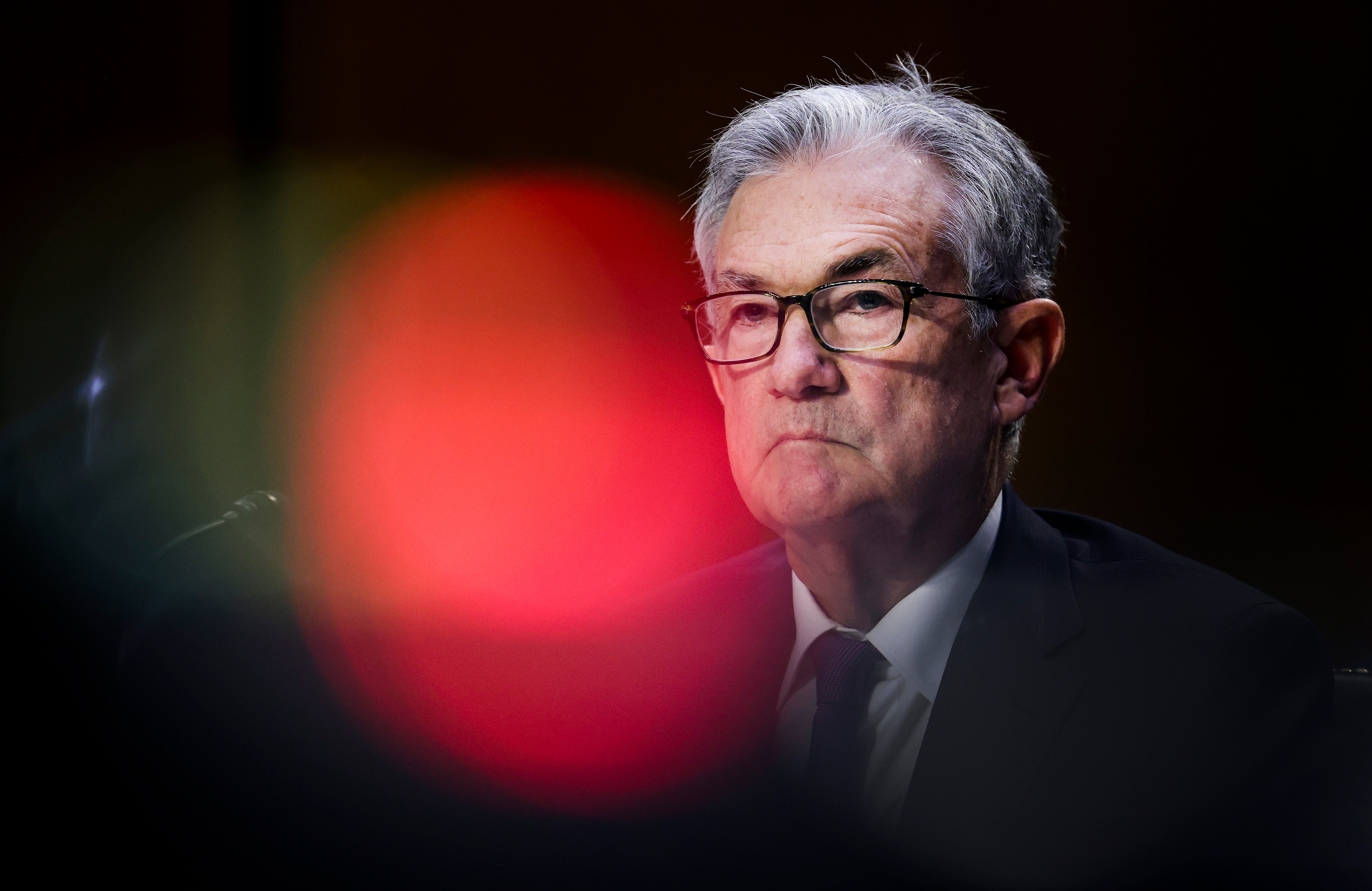Fed officials: Bond purchases could end by middle of 2022
Federal Reserve officials agreed at their last meeting that if the economy continued to improve, they could start reducing their monthly bond purchases as soon as next month and bring them to an end by the middle of 2022

Your support helps us to tell the story
From reproductive rights to climate change to Big Tech, The Independent is on the ground when the story is developing. Whether it's investigating the financials of Elon Musk's pro-Trump PAC or producing our latest documentary, 'The A Word', which shines a light on the American women fighting for reproductive rights, we know how important it is to parse out the facts from the messaging.
At such a critical moment in US history, we need reporters on the ground. Your donation allows us to keep sending journalists to speak to both sides of the story.
The Independent is trusted by Americans across the entire political spectrum. And unlike many other quality news outlets, we choose not to lock Americans out of our reporting and analysis with paywalls. We believe quality journalism should be available to everyone, paid for by those who can afford it.
Your support makes all the difference.Federal Reserve officials agreed at their last meeting that if the economy continued to improve, they could start reducing their monthly bond purchases as soon as next month and bring them to an end by the middle of 2022.
The discussion was revealed in the minutes of the Fed’s Sept. 21-22 meeting, released Wednesday. Fed officials also said that the taper itself could begin in the middle of November or December.
“Participants generally assessed that, provided that the economic recovery remained broadly on track, a gradual tapering process that concluded around the middle of next year would likely be appropriate,” the minutes said.
Last December, the Fed said that it would buy $120 billion a month in bonds until the economy had made “substantial progress” toward its goals of maximum employment and inflation that averages 2% over time. The bond purchases are intended to spur more borrowing and spending by keeping longer-term interest rates low. The Fed has also pegged its short-term benchmark rate at nearly zero.
At a news conference following the September meeting, Fed Chair Jerome Powell said that such progress had been made with inflation and the test was “all but met” when it came to employment.
“If the economy continues to progress broadly in line with expectations,” Powell said, “I think we can easily move ahead at the next meeting,” which will be held Nov. 2-3, when the reduction, or tapering, could be announced.
Earlier Wednesday, the government said consumer prices rose 5.4% in September compared with a year ago, matching a 13-year high that was also reached in June and July. The ongoing price gains have raised pressure on the Fed to dial-back its low-interest rate policies.
Hiring has also slowed sharply in the past two months, with the government reporting Friday that just 194,000 jobs were added in September, far below the roughly 1 million gained in both June and July.
Still, Powell said at the September news conference that he wouldn't need to see a “super great” jobs report that month to support tapering at the November meeting. He said that the cumulative progress that has been made — with more than 17 million of the 22 million jobs lost to the pandemic having been recovered — would likely be enough.
According to the minutes, Fed policymakers said that the delta wave of COVID-19 cases around the world “were exacerbating or prolonging” the supply chain bottlenecks that have forced many auto plants to shut down and pushed up prices for furniture, televisions, shoes, and other imported goods.
Several policymakers, which include the presidents of the Fed's 12 regional banks, said businesses in their districts “generally did not expect these bottlenecks to be fully resolved until sometime next year or even later.”